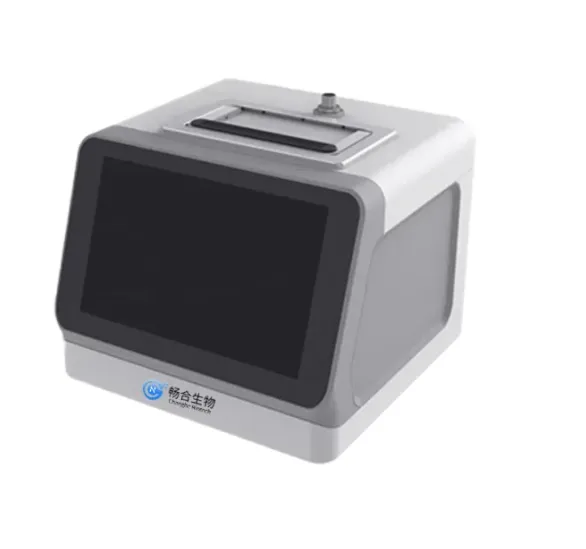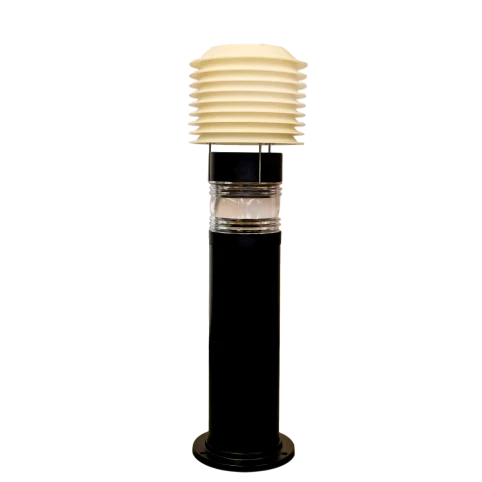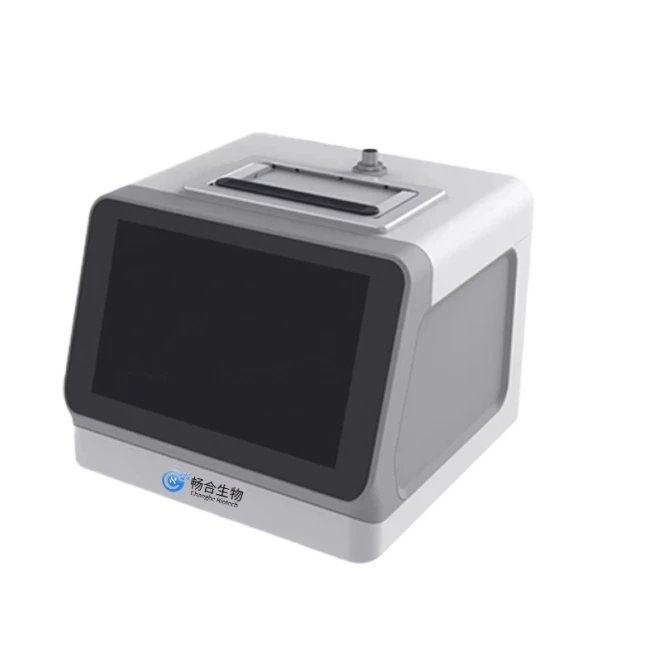
The Integration of Bio Detection with Artificial Intelligence
In the rapidly evolving landscape of modern science and technology, the combination of bio detection and artificial intelligence (AI) is revolutionizing various fields. By integrating bio detectors and biological detection techniques with AI algorithms, researchers and professionals are unlocking new possibilities for accurate, efficient, and intelligent analysis of biological data. This integration is set to have far - reaching impacts on healthcare, environmental monitoring, and beyond.

Bio Detectors: The Foundation of Bio Detection
Bio detectors are the cornerstone of bio detection and biological detection practices. These devices, ranging from simple handheld units to complex laboratory instruments, are specifically designed to identify and quantify biological entities such as cells, proteins, nucleic acids, and pathogens. Traditional bio detection methods, which heavily rely on manual operation of bio detectors, can be time - consuming and prone to human errors. However, with the advent of AI, the capabilities of bio detectors are being enhanced, transforming the bio detection process to achieve greater precision and efficiency.
AI - Boosted Performance of Bio Detection Devices
Artificial intelligence significantly elevates the performance of bio detectors used in bio detection and biological detection. Machine learning algorithms analyze vast amounts of data collected by bio detectors, uncovering patterns and correlations that are otherwise difficult for humans to detect. For example, in microscopic bio detection, AI can process images captured by bio detectors to identify abnormal cell structures, facilitating early disease diagnosis. Deep learning models, leveraging data from environmental biological detection by bio detectors, can predict the presence of pathogens, enabling proactive prevention strategies. Moreover, AI - powered bio detectors can self - calibrate and optimize their functions, reducing the need for frequent manual adjustments in bio detection workflows.
Practical Applications of AI - Integrated Bio Detectors
The integration of AI with bio detectors has led to a wide array of practical applications in bio detection and biological detection. In healthcare, bio detectors integrated with AI analyze biomarkers in blood or tissue samples more accurately, improving the speed and accuracy of disease diagnosis, especially for critical conditions like cancer. In environmental monitoring, AI - enhanced bio detectors identify harmful microorganisms in water and air, allowing for timely environmental protection measures. In the food industry, bio detectors with AI capabilities detect contaminants and spoilage organisms, ensuring food safety through advanced biological detection techniques.
Challenges and Solutions in AI - Bio Detection Integration
Despite its numerous benefits, integrating AI with bio detectors in bio detection and biological detection presents challenges. One major hurdle is ensuring the quality and quantity of data generated by bio detectors, as reliable data is essential for AI algorithms to function effectively. Another challenge is making AI - generated results interpretable within the context of biological systems. To address these issues, researchers are developing better data collection and preprocessing methods for bio detectors, as well as creating more transparent AI models that can provide understandable explanations for their predictions in biological detection.
Future Outlook of Bio Detection with AI - Driven Bio Detectors
The future of bio detection looks promising with the continuous development of AI - driven bio detectors. As technology advances, bio detectors will become more sensitive, portable, and intelligent, while AI algorithms will grow more sophisticated. This will lead to the creation of real - time, on - site biological detection systems. For instance, wearable bio detectors integrated with AI will continuously monitor individual health, detecting early signs of illness. In scientific research, AI - powered bio detectors will enable deeper exploration of complex biological processes, potentially driving breakthroughs in medicine and biotechnology.
The Integration of Bio Detection with Artificial Intelligence FAQS
What Data Do Bio Detectors Provide for AI - based Bio Detection?
Bio detectors supply diverse data for AI - enabled bio detection and biological detection, including genomic data, proteomic data, microscopic imaging data, and sensor data from environmental monitoring. AI processes this numerical, visual, and sequence - based information from bio detectors to identify patterns and make predictions, facilitating a wide range of applications.
How Reliable are AI - Enhanced Biological Detection Systems?
AI - enhanced bio detection systems can achieve high reliability, often outperforming traditional methods. However, their reliability depends on factors such as data quality from bio detectors, the complexity of AI models, and proper calibration of the detection devices. With continuous improvements in data collection and AI algorithms, the reliability of these systems is expected to increase further.
Can AI - Integrated Bio Detectors be Used in Off - site Bio Detection?
Yes, AI - integrated bio detectors are suitable for off - site bio detection and biological detection. Thanks to the development of portable bio detectors and the data - analyzing capabilities of AI, these systems can operate effectively in remote areas with limited resources. They can be used for disease screening, environmental monitoring, and other applications, bringing advanced bio detection to underserved regions.
What Ethical Considerations Exist in AI - assisted Bio Detection?
Ethical considerations in AI - assisted bio detection using bio detectors mainly revolve around data privacy, given the sensitivity of biological data. There are also concerns about potential misuse, such as discriminatory practices in healthcare or employment. Ensuring the transparency and accountability of AI algorithms used in biological detection is crucial to maintain public trust.
How to Select AI - Compatible Bio Detectors for Bio Detection?
When choosing AI - compatible bio detectors for bio detection and biological detection, first identify your specific detection needs. Then, research available bio detectors that have seamless integration capabilities with AI technologies. Many companies offer pre - configured AI - enabled bio detection solutions. For customized requirements, collaborating with experts in AI and bio detection integration can help you select the most suitable bio detectors.
Are you interested in leveraging the power of AI - integrated bio detection? Our company specializes in providing state - of - the - art bio detectors and advanced AI - driven biological detection solutions. Whether you're in healthcare, environmental research, or the food industry, our products offer high - accuracy, efficiency, and reliability. Contact us today to explore our product range and learn how our solutions can meet your specific bio detection needs!
-
The Importance of Calibration for Bioaerosol Samplersਖ਼ਬਰਾਂMay.23,2025
-
The Importance of Bio Sampling in Environmental Researchਖ਼ਬਰਾਂMay.23,2025
-
The Advantages of Mini PCR Technologyਖ਼ਬਰਾਂMay.23,2025
-
How to Perform a Mycoplasma PCR Testਖ਼ਬਰਾਂMay.23,2025
-
Choosing the Right Bacteria Detection Device for Your Needsਖ਼ਬਰਾਂMay.23,2025





